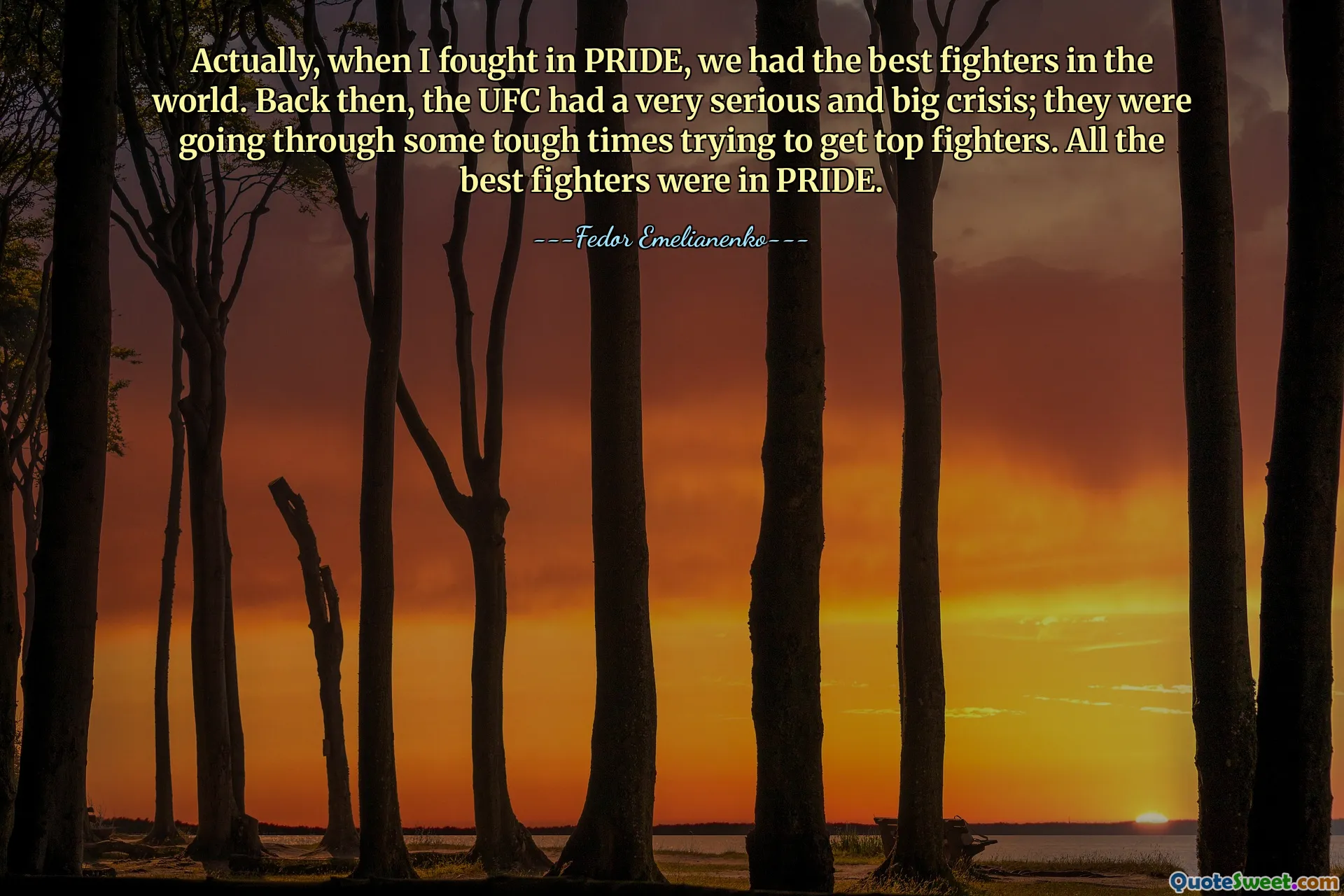
Actually, when I fought in PRIDE, we had the best fighters in the world. Back then, the UFC had a very serious and big crisis; they were going through some tough times trying to get top fighters. All the best fighters were in PRIDE.
The quote highlights a period in mixed martial arts (MMA) history when PRIDE FC was considered the premier fighting organization, attracting the world’s elite fighters. This era was marked by intense competition between leading promotions like PRIDE and UFC. The speaker emphasizes that during that time, PRIDE was the pinnacle, featuring top-tier talent, which in turn elevated the sport’s profile and quality of competition. The situation was notably different from current times, reflecting on how promotion dynamics and organizational health influence the sport's development. The crisis faced by UFC at that time provided an opportunity for PRIDE to showcase its strength, drawing in fans and fighters alike. Such reflections reveal a broader understanding of sporting ecosystems, where organizational stability and reputation directly impact athlete participation and fan engagement. Recognizing these historical shifts deepens our appreciation for the growth and resilience of MMA. It exemplifies that the landscape of combat sports is ever-changing, driven by business, promotions, and fighters' decisions. The sentiment underscores the importance of stable management and strategic vision in cultivating a sport’s top talent, which ultimately shapes its global appeal and credibility. As fans and observers, understanding these backstories enriches our experience and keeps us aware of the sport's evolving narrative. It’s a reminder of how crucial leadership and organizational health are to producing legendary fighters and memorable eras in martial arts history -- an insight that continues to influence contemporary MMA dynamics.







